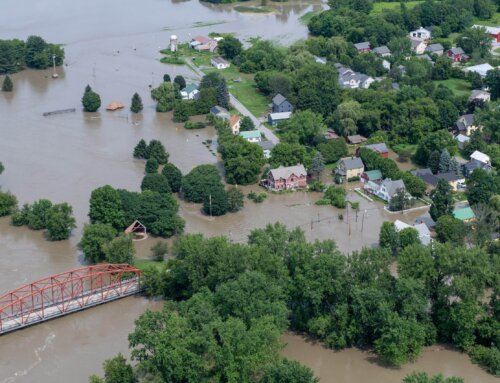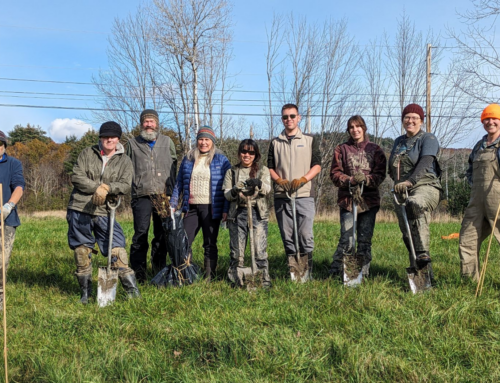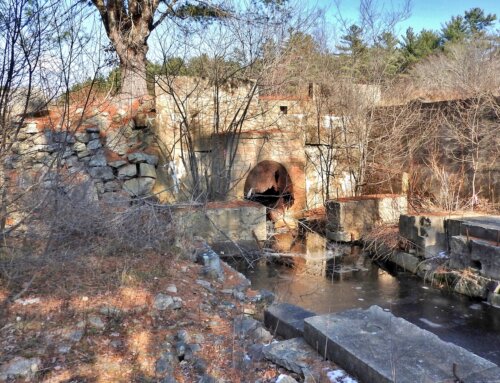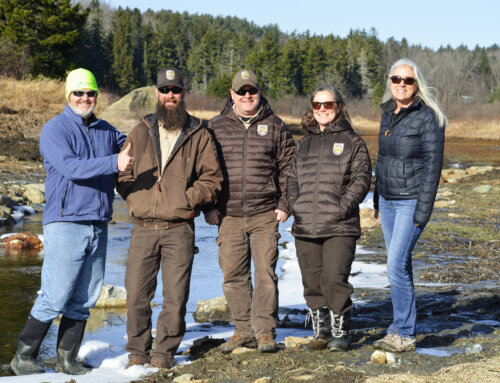Image shows filamentous algae and duckweed at Great Pond in Hatfield, MA.
Connecticut River Conservancy began a cyanobacteria monitoring program in the summer of 2022, and has continued this work throughout the 2023 field season. While cyanobacteria does not yet pose a serious threat to the Connecticut River watershed, there have been cases of cyanobacteria blooms which have the potential to become a bigger challenge in the future as climate extremes increase and agricultural nutrients affect water quality.
Our 2023 Cyanobacteria Monitoring Report is now available to provide the data gathered so far from 8 lakes and ponds tested in Massachusetts. In short, 2 of the 8 waterbodies were found to have active cyanobacteria blooms in 2023.
What is Cyanobacteria?
Cyanobacteria are photosynthetic bacteria that grow in water with high amounts of nutrients such as nitrogen and phosphorous. Some cyanobacteria produce harmful toxins. Under the right conditions, toxic cyanobacteria can multiply quickly to form dense populations known as Harmful Algae Blooms (HABs).
HABs are toxic to animals (including fish, birds, livestock, humans, and dogs) and are disruptive to healthy ecosystems, which is why we are beginning to apply more resources to monitoring cyanobacteria over time.
Next Steps and Collaboration
Looking forward, our monitoring efforts will continue in 2024, hopefully with more capacity added to increase the frequency of tests and communications to affected communities.
This project would not be possible without the partnerships of several organizations and individuals. In particular, we want to thank retired neurologist Dr. Allison Ryan, and Deputy Refuge Manager Dean Rhine. Dr. Ryan has spearheaded the monitoring and mitigation efforts for cyanobacteria by taking action in gathering a group of concerned stakeholders after witnessing the challenges HABs cause for recreational users and the environment, and the lack of resources offered by local governments. Dean Rhine with the Refuge has provided this effort with invaluable support and assets.
Thanks to Dr. Ryan and Mr. Rhine, we head into the third year of this mitigation and monitoring program!
See the full 2023 Cyanobacteria Monitoring report HERE.
For more questions about monitoring and sample locations, please contact Aliki Fornier at afornier@ctriver.org.









